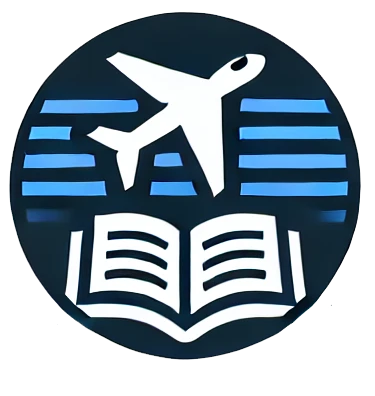Quality Control and Audit Basics
Training ID: T2405
Training Language(s): English
Available Format(s): E-Learning
The Quality Control and Audit Basics Training is designed to equip professionals in the aircraft manufacturing industry with the essential knowledge and skills required to maintain high-quality standards throughout the production process. This course focuses on the core principles of quality control (QC) and the role of auditing in ensuring compliance with both internal and external quality requirements. Participants will learn how to implement effective quality control processes, conduct audits, and ensure continuous improvement within their organizations.
The training covers critical topics such as defect identification, root cause analysis, audit planning and execution, and compliance with industry standards, all tailored to the specific needs of aerospace manufacturing.
Benefits for Individuals
- Enhanced Quality Control Skills: Gain a deep understanding of quality control techniques and how to apply them effectively within the aircraft manufacturing environment.
- Career Development: Strengthen your qualifications in quality management, a key area for career advancement in the highly regulated aviation industry.
- Audit Expertise: Learn how to conduct internal audits, assess quality performance, and ensure continuous improvement in manufacturing processes.
- Certification: Upon completion, receive a certificate that validates your expertise in quality control and auditing, boosting your professional credentials in the aerospace sector.
Benefits for Companies
- Improved Product Quality: Implement stronger quality control processes, ensuring that products meet both internal standards and customer expectations, reducing rework and defects.
- Compliance with Industry Standards: Ensure that your organization complies with regulatory and industry quality standards, minimizing the risk of non-compliance and penalties.
- Operational Efficiency: By identifying and addressing quality issues early, companies can reduce production delays, avoid costly rework, and improve overall operational efficiency.
- Continuous Improvement: Foster a culture of continuous improvement through regular audits and quality assessments, ensuring that the manufacturing process evolves to meet higher standards over time.
This training is ideal for quality control teams, engineers, and auditors working in aircraft manufacturing, ensuring that products meet rigorous safety and quality standards.
By the end of the Quality Control and Audit Basics training, participants will be able to:
Understand the Principles of Quality Control: Gain a comprehensive understanding of the fundamental concepts of quality control and its application in aircraft manufacturing processes.
Implement Effective QC Techniques: Learn how to apply key quality control techniques, including inspection, defect identification, and statistical process control, to ensure product excellence.
Conduct Internal Audits: Develop the skills needed to plan, execute, and report on internal audits, ensuring that all processes align with industry standards and regulatory requirements.
Perform Root Cause Analysis: Learn how to conduct root cause analysis to identify the underlying issues in quality defects and implement corrective actions to prevent recurrence.
Ensure Compliance with Industry Standards: Understand the quality standards and regulatory requirements specific to the aircraft manufacturing industry, and ensure processes are compliant.
Promote Continuous Improvement: Foster a culture of continuous improvement by using audit results and quality assessments to enhance production processes and maintain high standards over time.
By completing this course, participants will be equipped with the tools and knowledge to contribute to higher product quality, regulatory compliance, and efficient audit practices in the aircraft manufacturing sector.
The Quality Control and Audit Basics training is ideal for:
- Quality Control Inspectors: Individuals responsible for inspecting aircraft components and ensuring they meet quality standards throughout the manufacturing process.
- Manufacturing Engineers: Engineers involved in production who need to understand and implement quality control practices in their daily operations.
- Quality Assurance Teams: Professionals tasked with maintaining overall quality within the manufacturing facility and ensuring compliance with industry standards.
- Internal Auditors: Individuals responsible for conducting audits to ensure that manufacturing processes comply with internal and external quality regulations.
- Production Supervisors and Managers: Leaders overseeing the manufacturing process who need to ensure that quality control measures are being followed consistently.
- Compliance and Regulatory Officers: Professionals ensuring that manufacturing operations meet both internal policies and external aviation industry regulations.
This training is critical for anyone involved in quality control, audit processes, or production supervision in aircraft manufacturing, helping to ensure high product quality and compliance with regulatory standards.
To ensure a smooth and seamless experience in accessing and completing our e-learning courses, the following system requirements are recommended:
Hardware Requirements
- Device: A desktop or laptop computer is recommended, though the course can also be accessed on tablets or smartphones.
- Processor: 2 GHz or faster processor
- RAM: At least 4 GB of RAM (8 GB recommended for optimal performance)
- Storage: 500 MB of free disk space for temporary files and course materials
- Display: Minimum screen resolution of 1024×768 pixels
Software Requirements
- Operating System:
- Windows 7 or later
- macOS 10.12 (Sierra) or later
- iOS 12 or later (for mobile users)
- Android 8 or later (for mobile users)
- Browser: The latest version of any of the following browsers:
- Google Chrome
- Mozilla Firefox
- Microsoft Edge
- Safari
- Other Software:
- PDF Reader (such as Adobe Acrobat Reader)
- Office suite (for downloading/viewing course materials)
Internet Requirements
- Connection: Broadband internet connection (minimum 5 Mbps; 10 Mbps or higher recommended for videos and interactive content)
Additional Requirements
- Audio: Speakers or headphones for video and audio content
- Video: Web camera and microphone may be required for interactive sessions or assessments (optional depending on course format)
- JavaScript: Must be enabled in the browser
Cookies: Browser cookies must be enabled to track progress and save course data
Subscribe to our newsletter
